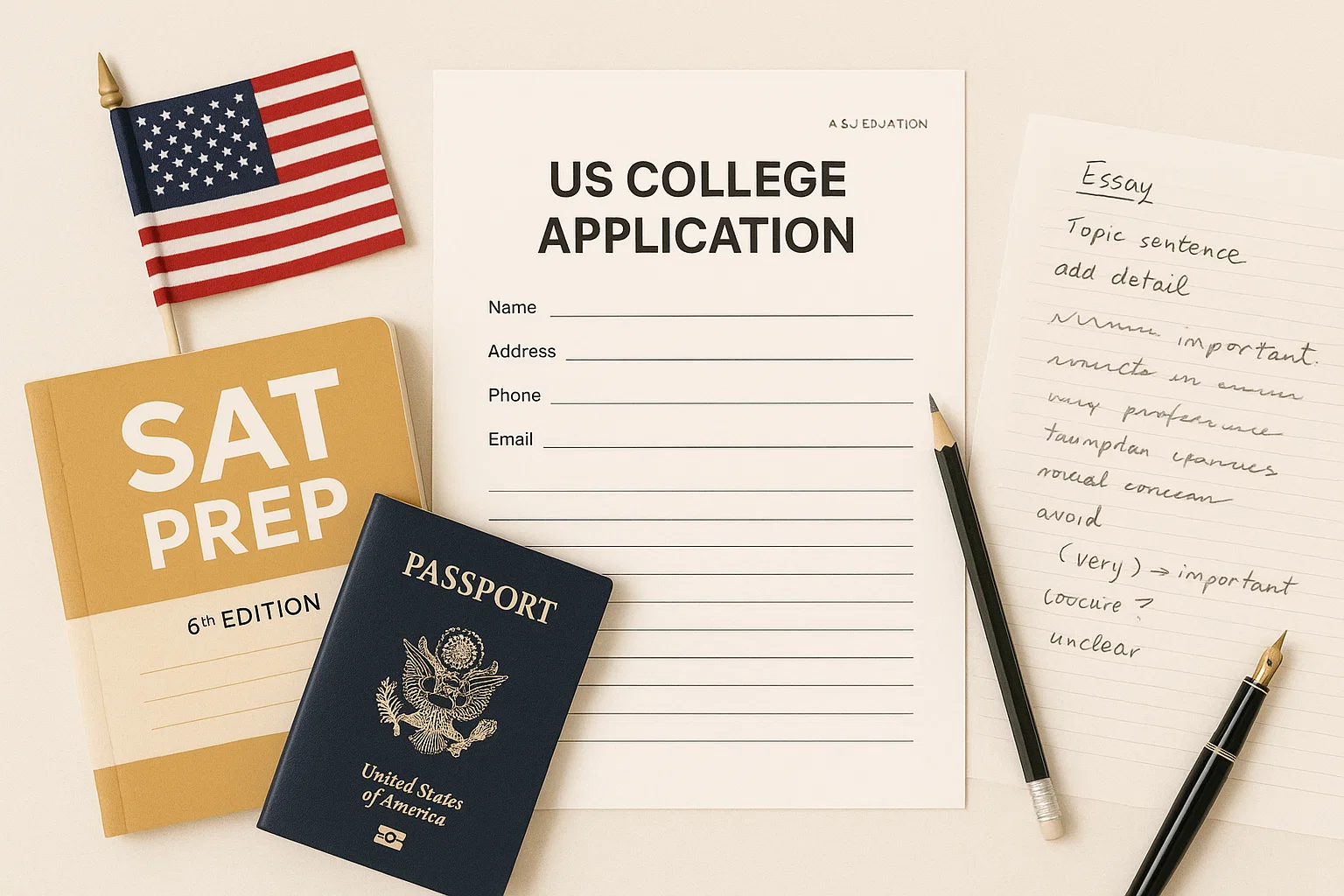
What Do UK Universities Look for in Applicants?
July 8, 2025
Understanding what UK universities truly value in applicants is essential for crafting a strong and focused application. While academic achievement forms the foundation of any successful application, top universities in the UK go beyond simple metrics. They assess your academic suitability, motivation for the subject, and readiness for independent study. Unlike the more holistic and personality-driven approach in the United States, UK universities prioritise academic alignment with the chosen course, intellectual potential, and evidence of subject-specific interest.
Below is a breakdown of what UK universities seek—and how their approach differs from their US counterparts.

Strong Academic Performance and Subject Relevance
UK universities are academically driven. They want to see that you can handle the demands of your chosen course and have prepared appropriately.
- Grades Matter Most: Predicted or achieved grades are the first filter. Offers are typically conditional, based on achieving specific A-level, IB, BTEC, or equivalent results.
- Subject Requirements: Most courses require certain subjects at A-level (or equivalent). For example, Engineering usually requires Maths and Physics; Medicine requires Chemistry and Biology.
- GCSEs and Minimums: Universities often set minimum GCSE requirements (usually English and Maths). Competitive courses may look for higher grades across the board.
UK universities place more emphasis on specific subject preparation. While US schools may admit a top student with broad extracurriculars but no clear academic direction, UK institutions want focused subject alignment.

Genuine Passion for the Subject
Your enthusiasm for the course is a major admissions factor. Universities want to see that you’ve engaged meaningfully with the subject beyond school.
- Personal Statement Focus: Around 75% of your statement should show subject-specific interest. Reading academic books, completing online courses, or attending lectures shows depth.
- Extended Exploration: Independent research, taster days, summer schools, or entering academic competitions are strong indicators of commitment.
- Reflection and Learning: It’s not enough to list what you’ve done—you need to explain what you learned and how it shaped your thinking.
Evidence of Independent Study and Critical Thinking
UK universities expect applicants to study independently and think analytically from day one.
- Initiative: Examples of pursuing knowledge on your own, such as reading challenging materials or running a personal research project, are valued.
- Academic Maturity: UK universities seek students who are ready for an academic environment without hand-holding.
You might notice that while US universities value leadership, resilience, and character traits, UK admissions are less concerned with personal character and more with academic autonomy.

Clear and Focused Personal Statement
The personal statement is your single written opportunity to present your case to all five course choices on UCAS.
- Be Subject-Specific: Focus on your academic interest and relevant experiences. Avoid broad declarations like “I’ve always wanted to…”—be specific, original, and analytical.
- Include Transferable Skills: Mention extracurriculars only where they add relevant skills (e.g., communication, time management), and use the ABC method: Action → Benefit → Course.
- Be Concise and Truthful: You have 4,000 characters or 47 lines. Every word must work hard. Avoid exaggeration—you may be questioned in an interview.
US students often write several essays tailored to each university. In the UK, you submit a single personal statement to all universities—so it must stay academic and neutral.
Strong References
UK universities rely on a single reference, often from a teacher or school counsellor, to support your academic readiness and potential.
- Academic Insight: The reference should validate your ability to succeed in the chosen subject and provide context for your performance.
- Prediction Support: Referees often confirm predicted grades and your academic strengths.
Communication Skills and Written Accuracy
Your ability to communicate clearly, especially in writing, is crucial.
- Fluent and Correct English: Universities expect accurate grammar, punctuation, and structure in your personal statement.
- Basic Maths Confidence: Even for non-STEM subjects, confidence with numbers is a useful skill and sometimes required (especially in psychology, business, or economics courses).

Additional Course Requirements
Some courses require further proof of suitability:
- Admissions Tests: Examples include the LNAT (Law), UCAT/BMAT (Medicine), or MAT/TSA (Oxford/Cambridge).
- Interviews: Most common at Oxford, Cambridge, and for selective courses like Medicine or Art.
- Portfolios: Needed for creative courses like Architecture, Fine Art, or Photography.
- Auditions: Required for Music, Drama, or Dance.
UK university admissions are rigorous, academic, and focused. While the US asks “Who are you?”, the UK asks “Are you ready for this course?”
To succeed, you must show:
- Academic preparedness
- Subject-specific passion
- Ability to study independently
- Clear, correct communication
You don’t need an overloaded extracurricular CV or a dramatic personal story—you need to prove that you're a serious, motivated student with the right skills and mindset to succeed in your chosen field.

At A&J, we help students shape focused, compelling applications that align closely with UK university expectations. Our tailored guidance ensures that each child builds an academic and extracurricular profile suited to their subject and long-term goals. From choosing the right qualifications and experiences to perfecting personal statements, we provide strategic, supportive planning—so students can apply with confidence, clarity, and a strong sense of purpose.

HEAD BACK TO STORIES
THIS HAPPENING




















.png)

